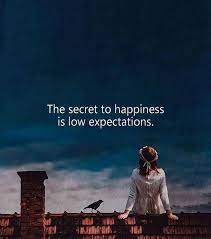……… and finally we have awoman in the offic ce
 “ Good Government is no substitute for Self Government.” Mahatma Gandhi M ehbooba Mufti has finally put an end to an era of men who ruled us. Ever since the ‘ Conditional Accession’ of Jammu & Kashmir with union of India, for the last seven decades, the Jammu & Kashmir caught in a political turmoil, was ruled by eleven men, as Prime Ministers and Chief Ministers, whose failure of politics, political courage, conviction and empathy has made Kashmir to burn time and again. These rulers asserted that in a purely statistical sense, examining indices of poverty and other social economical indicators, Kashmir is doing far better than most of the other Indian states and always demanded loyalty of the citizens to the ‘ statues- quo’ by force and coercion. The fact remains that over the year’s peace and normalcy in Kashmir remained a distant dream and no amount of economic largesse tempted the people, particularly the younger generation to buy unconvincing political argument. The present politicians and political parties need to understand the disillusion of the youth, who are fighting for their political aspirational existence, and it is these youths who will ultimately decide the future of Kashmir.
“ Good Government is no substitute for Self Government.” Mahatma Gandhi M ehbooba Mufti has finally put an end to an era of men who ruled us. Ever since the ‘ Conditional Accession’ of Jammu & Kashmir with union of India, for the last seven decades, the Jammu & Kashmir caught in a political turmoil, was ruled by eleven men, as Prime Ministers and Chief Ministers, whose failure of politics, political courage, conviction and empathy has made Kashmir to burn time and again. These rulers asserted that in a purely statistical sense, examining indices of poverty and other social economical indicators, Kashmir is doing far better than most of the other Indian states and always demanded loyalty of the citizens to the ‘ statues- quo’ by force and coercion. The fact remains that over the year’s peace and normalcy in Kashmir remained a distant dream and no amount of economic largesse tempted the people, particularly the younger generation to buy unconvincing political argument. The present politicians and political parties need to understand the disillusion of the youth, who are fighting for their political aspirational existence, and it is these youths who will ultimately decide the future of Kashmir.
Sheikh Muhammad Abdullah Sheikh Muhammad Abdullah ruled Jammu & Kashmir State as first Kashmiri Prime Minister from 5 th Mar 1948 to 9 th Aug 1953 and then as Chief Minister from 25 February 1975 – 26 March 1977 and 9 July 1977 – 8 September 1982. As an architect of ‘ Accession and Accords’ with Union of India, he lived his political life with the slogans of ‘ Aazadi’, ‘ Plebiscite’ and ‘ Autonomy’ giving birth to the ‘ political uncertainty’ and of course having achieved none of these, till he died on 8 th Sep. 1982. Having brought political awareness and sense of self respect to his people, while fighting autocratic oppressive rule of Maharaja Hari Singh, Sheikh Muhammad Abdullah, as an administrator, is being remembered for ‘ land to tillers’, ‘ introduction of free education’, and ‘ re- organisation and restructuring of districts with single line administration’. Bakshi Ghulam Muhammad After the dismissal and arrest of Sheikh Muhammad Abdullah on 9 th Aug 1953, his deputy Bakshi Ghulam Mohammed ruled the State of Jammu and Kashmir as Prime Minister for eleven years from 9 August 1953 – 12 October 1963.
Bakshi known as sell- out to Delhi, got the ‘ Accession’ ratified by Constituent Assembly on 6 th February 1954, but he is also being remembered as the architect of ‘ Modern Kashmir’ for his vision of development and creation of intuitions of higher education which set Kashmir on the road to progress. Having steadfastly resisted any attempt to further undermine Jammu & Kashmir’s special status with Union of India, and merger of National Conference into Congress, he was made to resign on 12 th Oct 1963 by Pt. Nehru under a scheme famously known as ‘ Kamaraj Plan’. Khwaja Shams- ud- Din Khwaja Shamsud- Din was the Prime Minister of Jammu and Kashmir for a brief period of time from October 12, 1963 to February 29, 1964. It was during his administration that the Prophet’s Relic ( PBUH) was stolen from the Hazratbal Shrine. This created a crisis which ultimately led him to being replaced.
Ghulam Muhammad Sadiq G h u l a m M u h a m m e d Sadiq was the Prime Minister of Jammu and Kashmir from 30 Feb 1964 – 29 Mar 1965, when the position of ‘ Prime Minister’ and ‘ Sadr- e- Riyasat’ was abolished by him through sixth amendment to Constitution of Jammu & Kashmir which came into effect from 30 th March 1965, when he was again sworn in as first Chief Minister of Jammu & Kashmir and remained in office form 30 March 1965 – 12 December 1971.
Sadiq known as ‘ honest’ was the most revered and respected Congress person in New Delhi, as he allowed the erosion of the Constitutional Autonomy of Jammu & Kashmir State by extending 94 of 97 entries in the central list and 260 of 395 articles of Indian Constitution to Jammu & Kashmir State and also merged National Conference into Indian National Congress.
Syed Mir Qasim Syed Mir Qasim a known Indian nationalist was the Chief Minister of Kashmir from 12 December 1971 – 25 February 1975, who offered to resign from the office of Chief Minister in order to encourage institutionalize the Indra – Sheikh accord 1975, which tamed the lion of Kashmir, ‘ Sher – e – Kashmir’ and brought him back into Indian mainstream politics.
Farooq Abdullah Farooq Abdullah inheriting power from his father, remained thrice Chief Minister of Jammu & Kashmir, first from 8 th Sep 1982 – 2 nd July 1984, second time from 7 th Nov 1986 – 19 th Jan 1990 and the last time from 9 th Oct 1996 – 18 th Oct 2002. During his first tenure he was overthrown by his brother – in- law Ghulam Mohammed Shah by splitting National Conference.
He is being remembered for infamous rigging of ‘ MUF’ elections in 1987 after ‘ Rajiv – Farooq Accord’ which is believed to have given birth to militancy in Kashmir. After having promised ‘ Autonomy with Sky as the limit’, he got elected through managed elections in 1996, but failed to push through his Autonomy resolution passed by State Assembly in 2002. Farooq’s ‘ Politics for fun’ pushed the State into the ‘ Worst turmoil’ as witnessed never before.
Ghulam Muhammad Shah Ghulam Muhammad Shah remained the Chief Minister of Jammu and Kashmir from 2 nd July 1984 to 6 th March 1986, when he ousted his brother- inlaw Farooq Abdullah by managing a split in National Conference but could remain in power with the support of the Congress, only for a brief period of 20 months with frequent curfews and earned the title of ‘ Gul Curfew’. Mufti Muhammad Sayeed Mufti Muhammad Sayeed lifetime Congressman and a trusted Indian face in Kashmir, to counter insurgency floated a new political party namely Peoples Democratic Party in 1999 and emerged as a new ‘ Awtaar’, promising resolution of the Kashmir conflict through his ‘ Self Rule’ doctrine and porous borders. He remained the Chief Minister of the State from November 2, 2002, to November 2, 2005, and 1 March 2015 – 7 January 2016, when to the ‘ betrayal of the electorate’, in an attempt to make north pole and south meet, he took a historical decision to enter into Saffron Alliance with BJP- RSS, who for the first time could consolidate its hold in Jammu & Kashmir through structures and systems of democracy. With his strained relations with BJP during nine & half months rule, he died on 7 th January 2016.
Ghulam Nabi Azad Ghulam Nabi Azad a National Congress leader was Chief Minister of Jammu & Kashmir State from 2 nd Nov 2005 – 11 July 2008. Azad is being remembered for free flow of funds from Delhi, fast track development with ‘ double shift’ work culture and famous ‘ Tulip garden’. But he became halfway a causality in June 2008, in the Amar Nath land transfer row, when PDP, his coalition partner, withdrew its support, which forced him to resign on 7 th July 2008.
Omar Abdullah Omar Abdullah a third generation leader of Abdullah family, who inherited a shattered house ( National Conference) was the 11 th and the youngest Chief Minister of the State from 5 January 2009 – 8 January 2015. Having failed in delivering promises both on political issues and governance, he faced a humiliating defeat in 2014 elections. He is being remembered for scams of BOPE and deadly spurious drugs, 110 innocent youth killings of 2010 unrest, for not resisting the hanging of Afzal Guru and also mishandling of 2014 floods.
For the last 68 years, these rulers have held that Kashmir conflict is a federal – state conflict and swore by the argument that the Kashmir should be ‘ resolved politically’ because it is a ‘ political issue’. But they have failed to comprehend what it really entails.
Events of the last seven decades, like that of ‘ Plebiscite’ based on UN Resolutions during 1947 – 1955, the rise of Kashmiri ‘ Nationalism’ 1963 – 1987, the period of ‘ Kashmiri insurgency’ since 1987, and the popular leaderless protests of 2008 and 2010 are manifestations of the urge for sovereignty.
The seven decades long resistance movement in Kashmir is an attempt to bring back the ‘ Locus and unit of Sovereignty’ of undivided Kashmir to Srinagar. As long as there remains a divided Kashmir with ‘ Locus and unit of Sovereignty’ elsewhere, neither any political nor a military solution will last.
( The writer is IFS ( Rtd) and Member All India Muslim Majlis – e- Mushawarat. New Delhi) CMs SO FAR AB. QAYOOM KHAN qayoomkhansnn@yahoo. co. in For the last 68 years, these rulers have held that Kashmir conflict is a federal – state conflict and swore by the argument that the Kashmir should be ‘ resolved politically’ because it is a ‘ political issue’. But they have failed to comprehend what it really entails.




